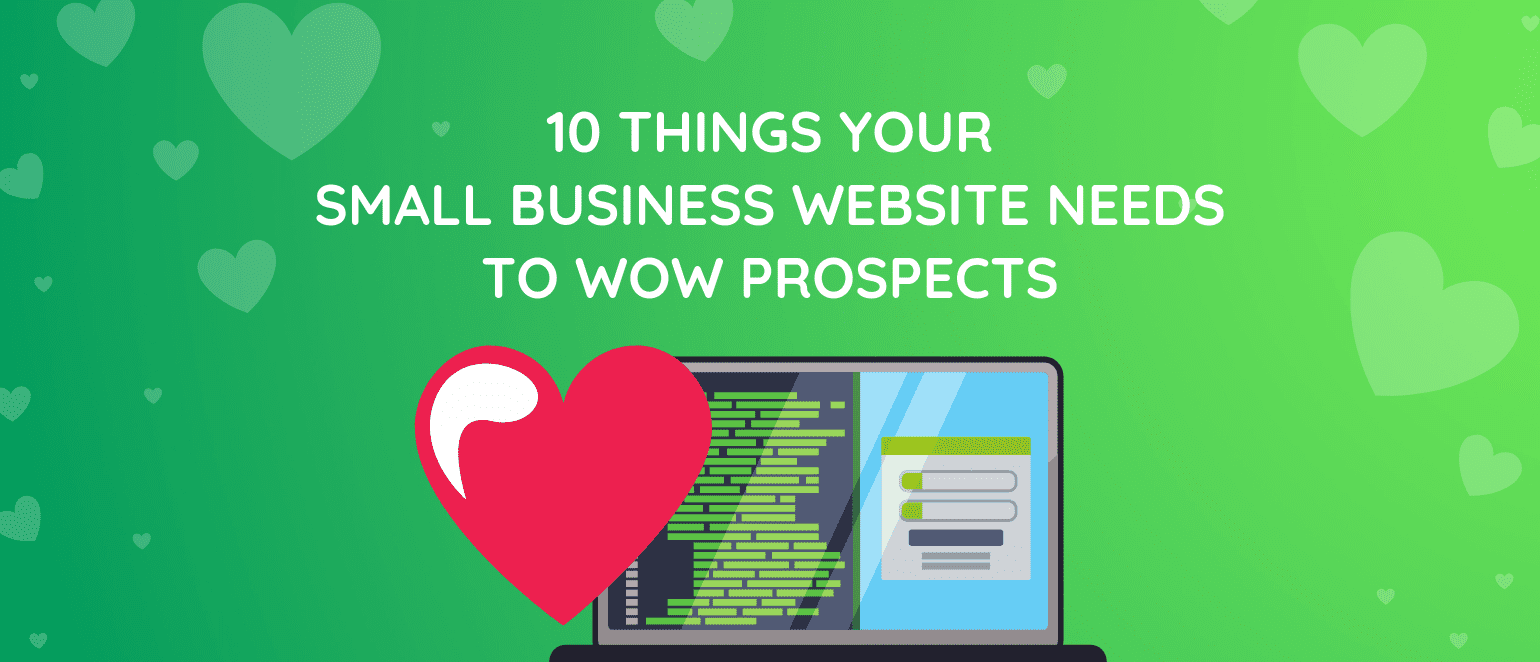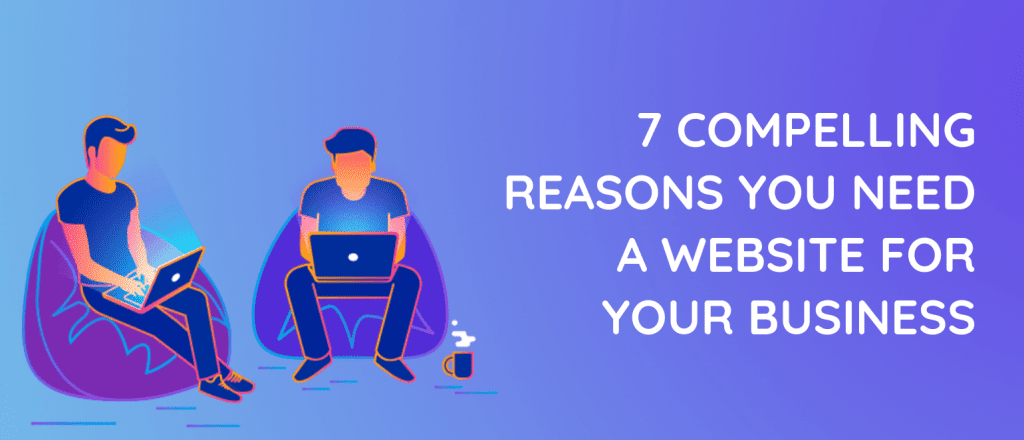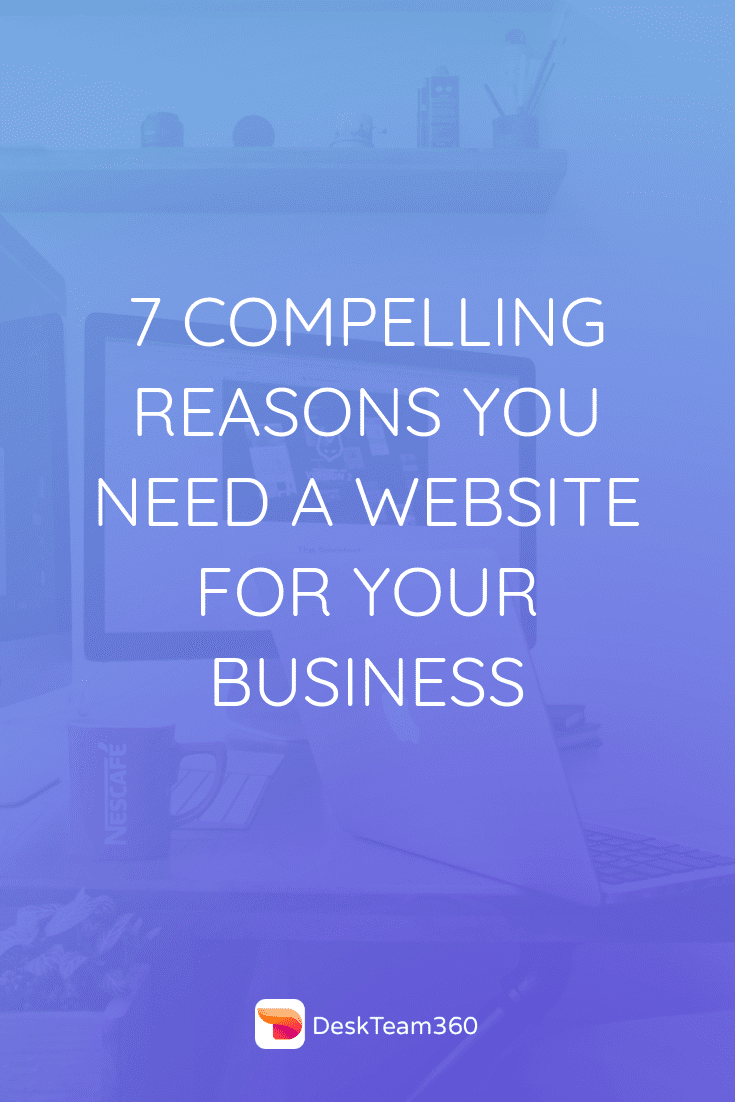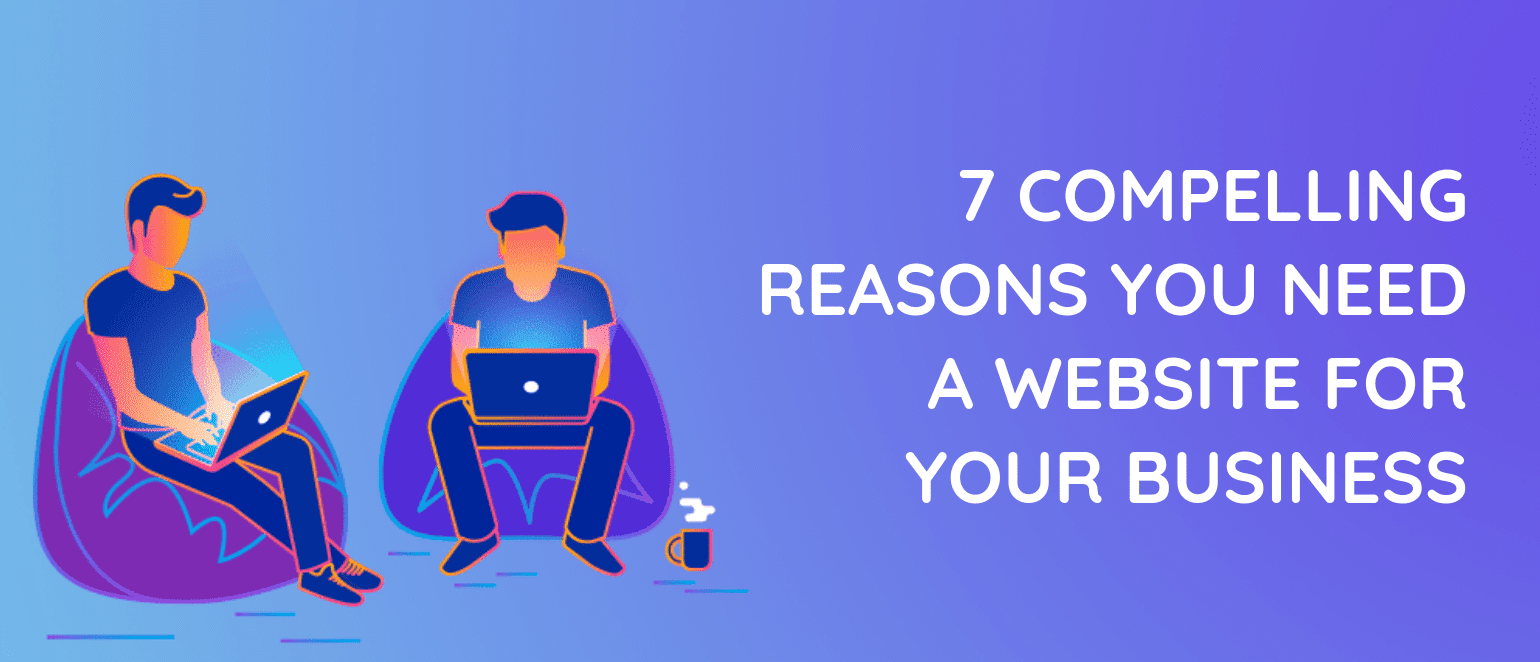
10 Things Your Small Business Website Needs to Wow Prospects

Launching your small business website is one of the most valuable actions you can take as a business owner yet less than two-thirds (64%) of small businesses have a website, according to this 2018 survey. In the survey, small business owners cited cost, irrelevance to industry, social media and lack of technical knowledge as key reasons behind their decision not to have a website.
While it can seem expensive, unnecessary or even too challenging to start a website, launching a professional website for your small business can be the best decision you can make. Here’s why…
7 Compelling Reasons You Need a Website For Your Business
1. Customers expect you to have a website
These days, a website is no longer considered “nice to have”; websites are now a prerequisite or a qualifier in the eyes of your prospects. Instead of searching in the phone book, they now check search engines to find solutions to their problems and answers to their questions. When searching online they’re looking to validate that your business can meet their needs. When your business isn’t online, you may not even be a contender. What’s worse, your prospects could find someone else to do business with during the process.
2. Boosts your credibility & validity
Slapping up any ole’ website just won’t cut it though. It’s important to have a professional looking, responsive website (whether you do it yourself or hire it out) because it communicates to your prospects and customers that you’re a legitimate and credible company who can help and serve them.
3. Always open for business
With a website, your small business never has to “close up shop”. Unlike most brick-and-mortar offices or shops, your website is open 24 hours a day, 365 days a year allowing you to provide convenient ways for your prospects and customers to review your products and services even when your store or office is closed.
4. Connect with new customers
Even if you already have an established customer base, a website is a predictable way to connect with new customers who might not be aware of your business. Kind of like a billboard, your site gives you the opportunity to introduce people to your products and services and another way for people to find you.
Of course, the number of eyes your website attracts depends on your conscious marketing efforts to get people’s attention, such as utilizing search engine optimization (SEO), blogging, social media, and online advertising.

5. Educate your prospects
Whether your prospects are hearing about your company for the first time or they’ve been a long time customer and referral partner, your website can help educate them throughout the entire customer journey.
Businesses primarily used to share info about their products and services through brochures and catalogs. While those tools can still be utilized, it’s faster and cheaper to add the same content to your website. You’ll also find it’s much easier to keep your marketing content up to date and reach more people online with a consistent, targeted content marketing strategy.
By adding relevant and useful content on your website, you can educate and inspire your audience to take action by signing up for your email list, requesting a custom quote, or even making a purchase on the spot.
6. Get more leads and sales
The more you educate and add value to your audience, the more they’ll be primed to take the next step or make a buying decision. Your website can play an important role in the lead generation and sales process. Think of your website as a 24-hour salesman. From blog posts, landing pages, sales pages, checkout pages, upsell offers and more, you can get more inquiries of hot prospects, interested in your business and provide a pleasant buying experience with your website.
7. Showcase social proof
Your website has the power to not only get new leads and sales but also gives you a platform to influence buyer’s choices when you show off testimonials, reviews, and success stories. This type of social proof helps your prospects feel confident about choosing your products and services and can also spark emotional triggers that influence the way your prospects feel about your business or their purchase. On your website, you should consider including case studies, video testimonials, photos, screenshots, links to your social media accounts and more.
A website is the cornerstone to all of your marketing efforts.
Regardless of your company size or industry, every small business serious about growing needs a website because it’s the cornerstone to all of your marketing efforts.
Your website and online presence will support everything from marketing campaigns, customer service, client relationship building, brand recognition, and more.
While social media is an effective way to maintain a relationship, email marketing is the most effective way to connect with your audience to sell your products or services. Your website is the centralized hub that allows you to gather contact information (name, email and sometimes phone number).
Additionally, your website also allows you to:
- Create a brand
- Target a specific audience and attract your dream client
- Create content that helps solve a specific problem your ideal client is experiencing
- Build relationships with prospects on a larger scale (1-to-many vs. 1-to-1)
- Engage your audience and add value
- Sell your audience relevant and useful offers that will help them solve their problems
- Get discovered through search engines
- Streamline, organize and automate your lead generation processes
Utilizing social media platforms is important in your overall marketing plan but should be a way ultimately drive traffic back to your website.
SO WHAT’S NEXT?
If you’re not sure whether you should hire a designer or developer or do it yourself, read this post: Should I use a DIY Website Builder or Hire a Web Designer & Developer?
If you know you’d like a designer or developer to take the project off your hands, check out DeskTeam360’s affordable custom websites.
Leaning more towards DIY? Explore Attraction Marketing Project‘s easy-to-use DIY website platform built on WordPress.




